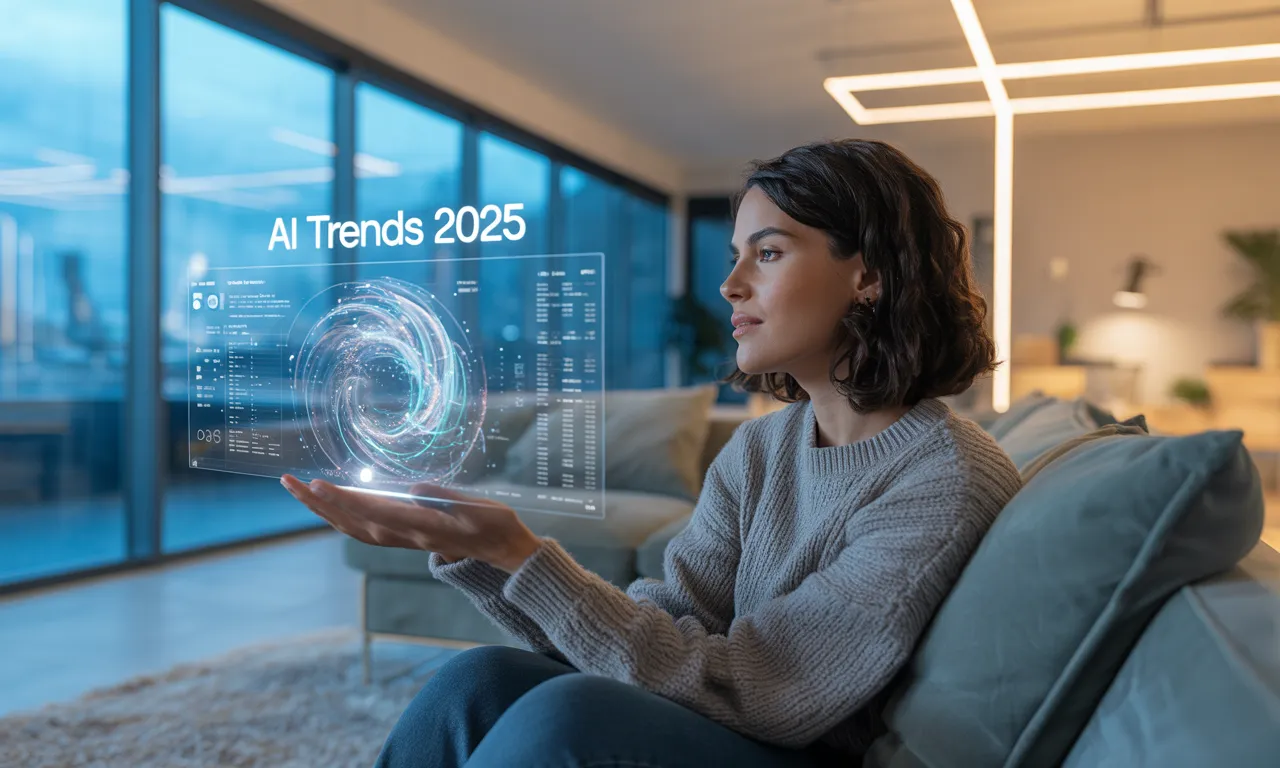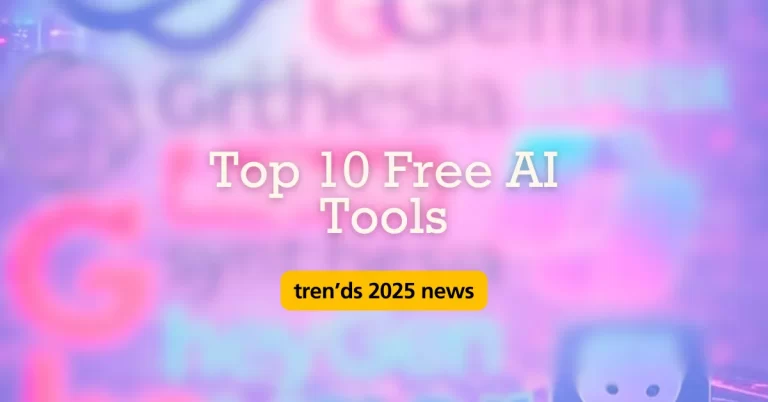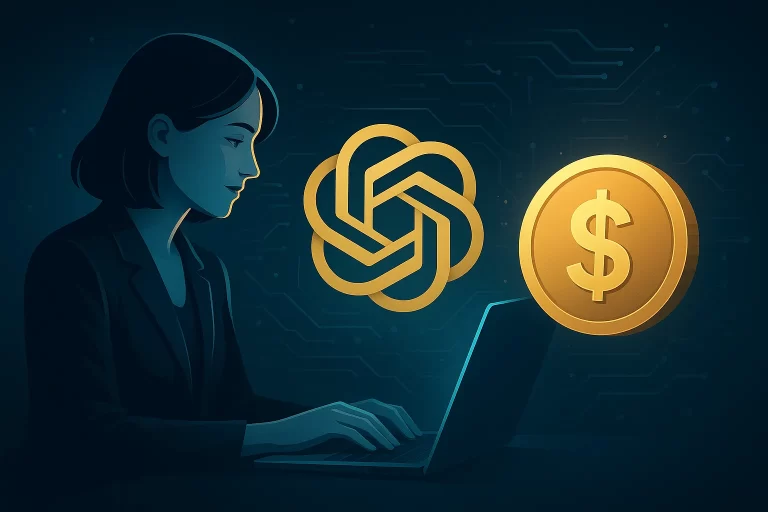What is Artificial Intelligence and how it will impact your life in 2025
Artificial Intelligence (AI) is no longer a distant, futuristic concept—it has become an integral part of our daily lives. By 2025, its presence will be even more prominent across various spheres of life. From personal assistants that organize our routines to systems that revolutionize how we work, AI is already shaping the present and promises to radically transform the future.
But have you ever stopped to think about the impact of this technology on your life? In this article, we’ll explore how artificial intelligence has evolved over the years, its current applications, and the benefits it brings to society. We’ll also address the challenges that come with this technological advancement and the areas that will be deeply affected in the coming years. Get ready to better understand this silent revolution that’s changing everything around us!
The Concept of Artificial Intelligence
Artificial Intelligence, or AI, refers to the ability of machines to perform tasks that typically require human intelligence. This includes reasoning, learning, and even perception. The essence of AI is to enable systems to simulate human cognition.
There are different types of artificial intelligence. Weak AI is designed to perform a specific task, such as virtual assistants that answer simple questions. Strong AI, on the other hand, aims to understand and apply knowledge across various situations, approaching human-level capabilities.
Algorithms are fundamental in building these systems. They allow machines to analyze data and learn from it. The more information processed, the better the machine’s performance becomes.
Moreover, human-machine interaction is becoming increasingly natural. Interfaces are being improved to facilitate communication.
With constant technological advancement, the concept of artificial intelligence continues to evolve rapidly. Each day brings new opportunities and challenges in this fascinating field of computer science.
The Evolution of Artificial Intelligence by 2025
The evolution of artificial intelligence has been extraordinary over the past decades. By 2025, this progress will become even more evident. Technologies that once seemed like science fiction are now part of our everyday lives.
In previous years, AI was seen as a powerful but limited tool. Today, the scenario is different. Deep learning models and neural networks have transformed how machines understand complex data.
Human-machine interactions are becoming more natural. Virtual assistants have evolved to understand emotions and context, creating personalized and efficient experiences for users.
Additionally, algorithms are used in various fields, from healthcare to transportation. Medical diagnoses now benefit from AI to detect diseases early.
Companies are heavily investing in intelligent automation. Manual processes are being replaced by autonomous systems that perform tasks quickly and with high precision.
These changes affect not only large corporations; small businesses also benefit from this technological revolution by optimizing daily operations and improving customer experience.
How AI Already Impacts Our Lives Today
Artificial intelligence has already become a surprising part of our daily lives. From social media to virtual assistants, its presence is undeniable.
When you use your smartphone to get directions or listen to music, AI is there, analyzing your patterns and preferences. Algorithms learn what you like and personalize your experiences.
In healthcare, more accurate diagnoses are being made with the help of intelligent technologies. This enables more effective and faster care for patients worldwide.
In education, adaptive platforms use AI to offer personalized content to students. Each learner receives material tailored to their learning pace.
E-commerce has also been transformed by artificial intelligence. Personalized recommendations make online shopping more enjoyable and efficient.
These are just a few examples of how AI is already part of our daily lives. Every day, new applications emerge, making it an essential tool across various sectors of modern society.
Benefits of Artificial Intelligence for Society
Artificial Intelligence brings a range of significant benefits to society. One of the most notable advances is in healthcare. With the use of algorithms, early diagnoses and personalized treatments are becoming increasingly accessible and accurate.
Moreover, AI has transformed the education sector. Adaptive tools allow students to learn at their own pace, improving knowledge retention and supporting different learning styles.
In the economic sphere, companies are using AI-based solutions to optimize processes. This results not only in efficiency gains but also in the creation of new jobs that require advanced technical skills.
Another important aspect is public safety. Intelligent systems help authorities predict crimes before they happen, using historical data and behavioral patterns.
Finally, in everyday life, virtual assistants simplify tasks such as scheduling appointments or controlling smart home devices. The technology is already part of our routines and contributes to a more practical and connected lifestyle.
Challenges and Concerns with the Advancement of AI
The advancement of Artificial Intelligence brings a series of challenges and concerns that cannot be ignored. The speed at which this technology evolves raises significant ethical questions. How can we ensure that AI is used fairly and responsibly?
One of the main points of debate is data privacy. As more personal information is collected to train algorithms, fears arise about how this data will be used and stored.
Additionally, there is the risk of widespread unemployment. With machines capable of performing tasks previously done by humans, many professions are under threat. This requires a reassessment of the skills needed in the job market.
Security is another critical issue. Autonomous systems have the potential to be manipulated or suffer catastrophic failures.
Lastly, there is growing concern about the possible creation of superintelligent systems without proper regulation. Humanity’s future may depend on how we address these issues today.
Areas That Will Be Impacted by AI in 2025
In 2025, Artificial Intelligence will have a profound impact on various areas. In healthcare, for example, more accurate and faster diagnoses will become a reality. Highly advanced algorithms will analyze medical exams with impressive efficiency.
Education won’t be left behind. AI tools will personalize learning for each student, adapting methods and content to individual needs. This will make the educational process more inclusive and effective.
Commerce will also be transformed. Stores will use intelligent systems to predict consumer trends and optimize inventory, offering a personalized experience to customers.
In the automotive industry, autonomous vehicles will be more present on the roads. Traffic safety is expected to increase significantly with this intelligent technology guiding cars safely.
Additionally, agriculture will see remarkable advances through the use of drones and sensors that monitor crops in real time. This revolution will enable more efficient and sustainable food production.
These innovations will show how AI can shape our daily lives across a variety of sectors essential to modern living.
The Future of Artificial Intelligence and Its Potential
The future of Artificial Intelligence is promising and full of possibilities. As technology advances, we can expect innovations that will further transform our daily lives. AI will not only make our lives more efficient but also open doors to new forms of interaction and learning.
By 2025, we’ll see even smarter virtual assistants capable of understanding emotional nuances and complex contexts. The healthcare sector will greatly benefit from early diagnoses and personalized treatments thanks to advanced data analysis. In education, personalized learning will become a reality accessible to all.
However, this future brings important ethical questions. We must ensure that AI is developed responsibly and transparently. Concerns about data privacy and the impact on the job market will continue to be intensely debated.
Collaboration between humans and machines promises to generate innovative solutions to global challenges. Therefore, it’s up to us to shape the path we want to follow as we integrate this technology into our daily lives.
We are just beginning to explore the limitless potential of Artificial Intelligence. Tomorrow will bring incredible opportunities for those willing to embrace the changes ahead.
Want to take your professional life to the next level with Artificial Intelligence in 2025?
Discover the course “Artificial Intelligence from Zero to Pro” — ideal for both beginners and those already working with technology. With a focus on Generative AI, practical applications, and ethics, it’s



